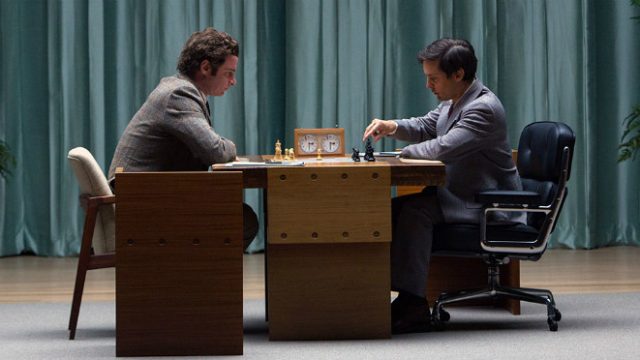One of the appeals of competition is its instant narrative. The rules, boundaries and histories of games turn otherwise arbitrary motions – moving bits of plastic or stone around a board, hitting a ball with a stick, pressing buttons to manipulate light patterns – into stories with protagonists and structure and mystery, all the good stuff. It’s no wonder movies use sports and games as a jumping off point.
Sports make up the overwhelming majority of game-related stories. For decades boxing was the most common sport featured on film. Its one-on-one sanctioned violence made it easy to film compellingly (and inexpensively). As the sport declined in popularity, so too did its presence onscreen. Supposedly and surprisingly, the second place finisher is American football. My favorite example in the genre deals with the next most common: baseball. Bull Durham approaches competition from a weary, veteran standpoint. The games behind the scenes are just as important as the ones on the field, making and breaking fortunes and relationships, and Kevin Costner’s journeyman player Crash recognizes how that fact can elevate or ruin the pasttime.
Other types of games have been represented less onscreen than sports, and even less often as the central plot mechanism. It’s harder to visually represent cerebral challenges. Still, there’s plenty of Westerns and spy movies that turn on card games. Board games are rare, but chess has made its way into classics. The Seventh Seal has its famous match and the game has a sports-like pivotal role in Searching for Bobby Fischer. Lots of documentaries use competitions to structure their social observations, starting with spelling bees in Spellbound and going on to include pretty much every competitive human activity from crossword puzzle races to rock, paper, scissors.
Not to mention Donkey Kong. Video games have a unique relationship to movies. Unlike sports and board games, they’re much younger than movies and they also often strive to tell visual stories. Usually we see video games taking story cues from movies rather than the other way around. And when a movie does use a video game, it’s adapting one of those stories and leaving out the playing aspect. It’s probably more due to the irresistible box office forces of Kevin Hart and Dwayne “The Rock” Johnson, but maybe some of the appeal of monster hit Jumani: Welcome to the Jungle is the way it recognizes video games as something played, containing avatars for other people. Esports have only barely emerged as a legitimate competitive activity, with several college campuses starting their own esports teams and offering scholarships to players. How far are we from the esports version of Hoosiers?
Your turn, Soluters: What movies best capture the spirit of competition? What games have translated well and what are some you’d like to see done more often (or at all)?
All answers are welcome, but of course the winning one will be hoisted on everybody’s shoulders and frozen in glory as the credits roll.

